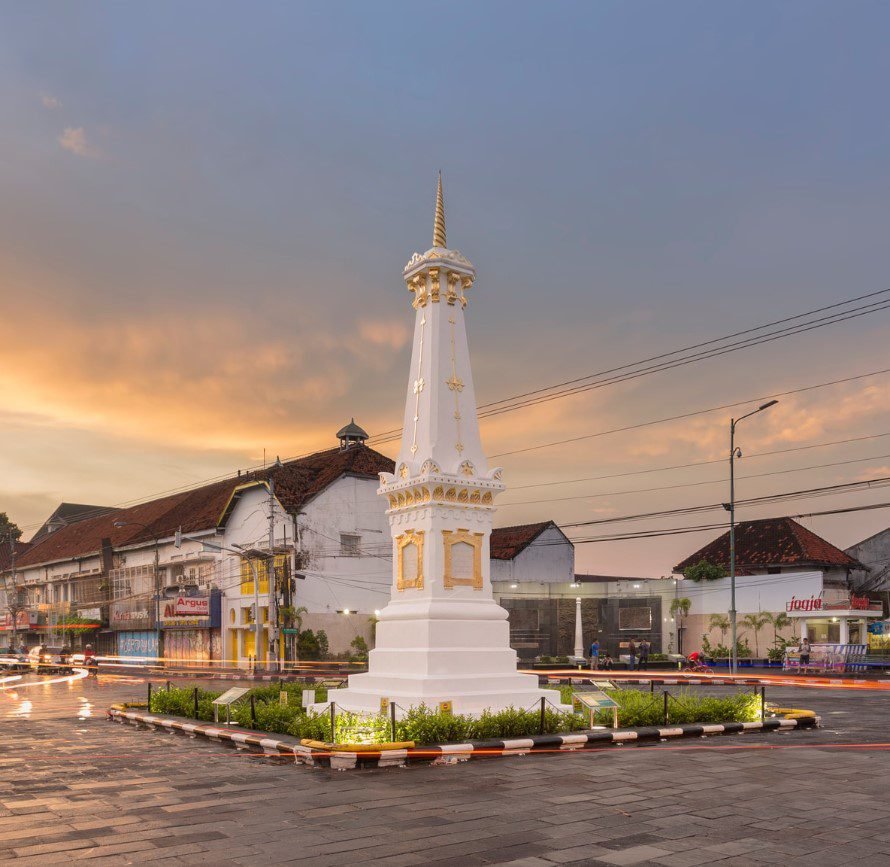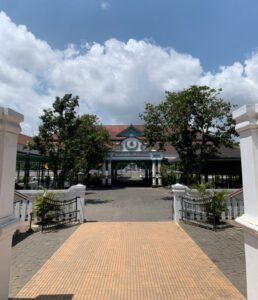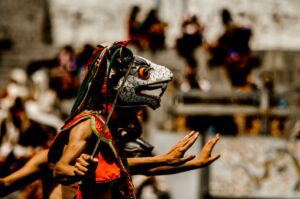Indonesia has an interesting cultural diversity, one of which is Javanese culture. The following is information about Javanese culture in Yogyakarta that you can explore.
Getting to Know Cultural Diversity in Indonesia
Indonesia is famous for its diverse culture. This cultural diversity causes Indonesia to be known by foreign citizens who are interested in the cultural diversity that exists in Indonesia.
Indonesia has a variety of cultural diversity such as traditional ceremonies, traditional clothing, traditional houses, traditional musical instruments, traditional dances, weapons, regional songs, and even special foods that vary in each region.
To date, Indonesia has 38 provinces with a variety of different varieties and of course it is very interesting so that many tourists from abroad come to enjoy the beauty of Indonesia’s cultural diversity.
One area that has a culture that attracts foreign tourists is Yogyakarta. Even though Yogyakarta has a beautiful and beautiful culture, other regions also have cultures that are no less interesting.
This time, the author will invite you to dive into Javanese culture in Yogyakarta. Come on, see the explanation about Javanese culture in Yogyakarta.
Yogyakarta City
Who doesn’t know the city of Yogyakarta? One of the cities that has cultural diversity and is a tourist destination of choice for domestic and foreign tourists.
Many tourists like to linger in the city of Jogja because Jogja is famous as a romantic city. Apart from that, the city of Jogja has many cultures, making the city of Jogjakarta famous for tourists who want to get to know Javanese culture because this city is still strong in Javanese culture.
Jogjakarta has a unique and antique culture, so it is not surprising that many tourists will continue to remember this city. Apart from the history of the city of Yogyakarta which is thick with Javanese culture, this city also has unique traditions. Let’s take a peek at what can be explored in the city of Jogja.
Cultural Traditions in Yogyakarta
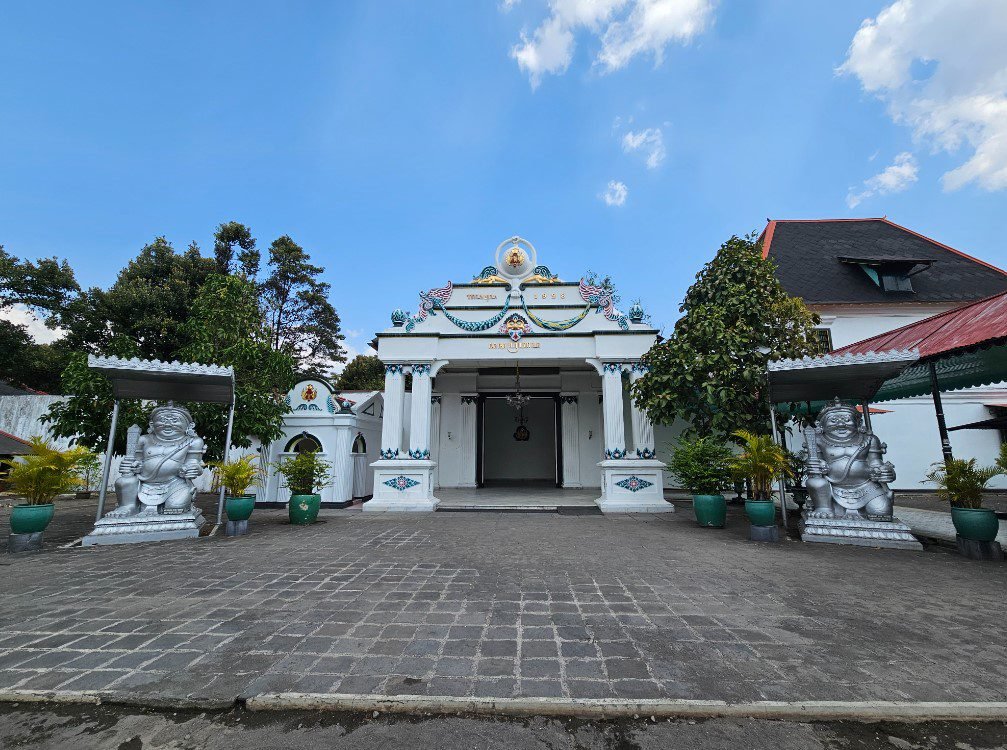
Yogyakarta is famous for its culture. There are many cultural traditions found in Yogyakarta. These cultural traditions include traditional ceremonies, dances, etc.
There are many culture in Yogyakarta, such as traditional ceremonies, that can be found every year. Of course, cultural traditions in Yogyakarta have very meaningful cultural values. The following are several traditional ceremonies that can be found as a form of cultural tradition in Yogyakarta.
1. Grebeg Sekaten
One of the culture in Yogyakarta is Grebeg Sekaten. This tradition is an annual tradition that is often held to commemorate the birthday of the Prophet Muhammad SAW. This event is held during the month of Rabiul Awal.
During the Grebeg Sekaten traditional activityThere are mountains that are fought over together by the people who take part in the Sekaten celebration. The Sekaten ceremony itself is part of the Sultan’s efforts to preach and invite people to live a life full of tolerance.
2. Tumplak Wajik
Apart from Sekaten, don’t forget the tumplak wajik ceremony as a cultural tradition in Yogyakarta. This ceremony is a series of Sekaten as a tradition of the Jogja palace.
Tumplak wajik is the activity of making traditional snacks, namely diamonds, to start making pareden which is used in the Grebeg ceremony.
The diamond tumlak lasts for 30 minutes, then the cooked diamond dough is poured out to make the frame for the estri mountains.
3. Separan Bekakak
The next culture in Yogyakarta is Saparan Bekakak. Bekakak means victim of animal or human slaughter. When carrying out this tradition, the bekakak is an imitation human doll in the form of a bridal doll sitting in a cross-legged position and made from sticky rice flour.
Saparan Bekakak activities are conducted during the month of Safar. The purpose of this traditional ceremony is to honor the spirits of Kyai and Nyai Wirasuta who are the umbrella bearers of Sri Sultan Hamengku Buwono I. This activity was held in Ambarketawang, Yogyakarta.
4. Kanjeng Kiai Tunggul Wulung Revival Ceremony
The next culture in Yogyakarta is the Wiyosan Ceremony. This ceremony was organized by the nobles of Yogyakarta palace. In the implementation of this ceremony, the heritage flag of Kanjeng Kiai Pare Anom is always accompanied by the flag that was made during the reign of Sri Sultan Hamengku Buwana V.
The purpose of the ceremony of Kanjeng Kiai Tunggul Wulung’s death is to eradicate the epidemic of infectious diseases that hit the city of Yogyakarta.
5. Rebo Wekasan
The next culture in Yogyakarta is the Rebo Wekasan Ceremony which is held at night on the last Wednesday of the month of Sapar. This activity is held from 07.00 in the afternoon to 05.00.
In the process of this ceremony, we use a dish in the form of a sacred bowl of spices, chicken ingkung, lalapan, sekar kenya, a hundred dollars, market tukon, red jenang, white jenang, red red jenang, barobaro jenang, golong rice with side dishes, a rooster. who is still alive.
The purpose of holding the Rebo Wekasan ceremony is to remind children and grandchildren of disease disasters in the past that could not be avoided. The location for this traditional ceremony is Nepi, a place that is considered sacred. The ceremony held at this place aims to ask for safety and to have all your dreams granted.
6. Jolosutro Kupatan
The next culture in Yogyakarta is the Jolosutro kupatan ceremony which is held in Bantul, Yogyakarta. This activity is a village clean or apostolic ceremony.
The purpose of the Kupatan Jolosutro ceremony is to express gratitude towards the ancestors, the Prophet Muhammad SAW, and Allah SWT. The time for the Jolosutro kupatan ceremony is after the harvest period on Monday at the same time as the full moon.
7. Becekan
The next cultural tradition in Yogyakarta is the Becekan Ceremony which is held on the slopes of Mount Merapi, Yogyakarta. This ceremony is believed to be a ward off reinforcements.
The Becekan ceremony process requires offerings in the form of tumpeng along with side dishes, grilled chicken, market tukon, candy, incense and so on.
What’s interesting about the Becekan ceremony procession is that there is a procession of slaughtering a goat with a large knife and a welat to clean the fur. Apart from that, during the ceremony everything must be done by men.
8. Labuhan
There is a culture in Yogyakarta called the Labuhan ceremony. The Labuhan tradition is the activity of throwing something into water, whether into a river, sea, or other special place. The objects thrown can be offerings or offerings to spirits who are thought to have power in the target location.
The purpose of the Labuhan ceremony is to ask for safety, both for Sri Sultan Hamengku Buwono, the Palace, and the people of Jogja as a whole. The Labuhan ceremony is held in several locations in Jogja, including Parangkusumo, Mount Merapi, and Mount Lawu.
9. Jegog Lesung
Another culture in Yogyakarta is jegog lesung or rice pounding tools. This event is called to describe the joy of the farmers after harvesting.
At the Gejog Lesung ceremony, there is a musical melody produced by the farmers’ creativity so that the sound produced tends to be simple and the movement simple
The Gejog Lesung ceremony is usually held in Imogiri, Gunungkidul, and Kulon Progo. Currently, this ceremony has undergone many modifications, but this does not reduce its appeal as a performing art.
10. Nyadran
Furthermore, the culture in Yogyakarta is the Nyadran ceremony to pray for deceased ancestors. Nyadran is also known as Ruwahan.
The reason why Nyadran is called Ruwahan is because this activity is carried out in the month of Ruwah. A series of nyadran activities such as cleaning ancestral graves, a carnival or procession to the ceremony site, and ending with a meal together.
11. Merti Code
The next culture in Yogyakarta is the Merti Code. The purpose of the Merti Code tradition is to maintain the Code River which divides the city of Jogja.
This ceremony is a routine annual ceremony where water from seven springs is treated by the village elders and stored in a small pot with one of the springs from the slopes of Mount Merapi.
enceh is paraded around the village around the Code River with the heirloom of Sultan HB X (Kyai Ranumurti) accompanied by the village brigadas.
The purpose of the Merti Code tradition is an effort to encourage the community to preserve the river.
12. Nguras Enceh
In addition to the Merti Code, there is a culture in Yogyakarta where the Nguras Enceh ceremony is held every Sura month in the Javanese calendar and is followed by the palace servants.This event is always held on Friday Kliwon or Tuesday Kliwon.
The purpose of draining Enceh is to cleanse the heart of all impurities. The process begins by cleaning four barrels in the tomb of the Kings of Imogiri, Bantul. It is said that the water taken from the four barrels is believed to have the ability to cure various diseases and keep people away from bad luck.
13. Jamasan Pusaka
The next culture in Yogyakarta is Jamasan Pusaka which is an annual tradition in the month of Sura to clean the heirlooms of the Jogja Palace.
Jamasan Pusaka activities are usually held on Tuesday Kliwon or Friday Kliwon in the month of Sura. The main heirlooms, such as the Tombak Kyai Wijoyo Mukti, are cleaned through prayer, lime, sprinkling with water, giving warangan from arsenic, and finally smeared with a mixture of coconut oil and sandalwood.
Jamasan Pusaka is not only a ceremony to honor heirlooms, but is also a symbol of the Javanese people’s attitude towards welcoming the Javanese New Year. Through this ritual, they show attention and appreciation for cultural heritage.
Tradition around the Yogyakarta Palace Fort
A culture in Yogyakarta that is often done every year is going around the Ngayogyakarta Palace Fort. This procession is a munajat or madrawa to the presence of God by walking along a certain path.
The mubeng procession for the Ngayogyakarta palace fort was actually inspired by the holy journey of emigration from Mecca to Medina by the entourage of the Prophet Muhammad SAW.
The process of carrying out the tradition of mubeng Benteng starts with the recitation of the end of the year prayer, the beginning of the year, and the Suro month prayer, followed by a blessing procession from the palace’s top clerics, followed by the recitation of a prayer for prosperity and protection to the Almighty God.
Yogyakarta Cultural Batik
Apart from traditional ceremonies, Jogja has batik as a cultural tradition in Yogyakarta. Batik is a culture that has become a cultural heritage from our ancestors. The famous batik in Yogyakarta is Giriloya batik which is well known to foreigners.
Apart from Giriloya batik, there are also other batik motifs such as Ceplok, Kawung, Parang Kusumo, and slope motif batik which are no less famous in Yogyakarta.
Ramayana Dance Culture
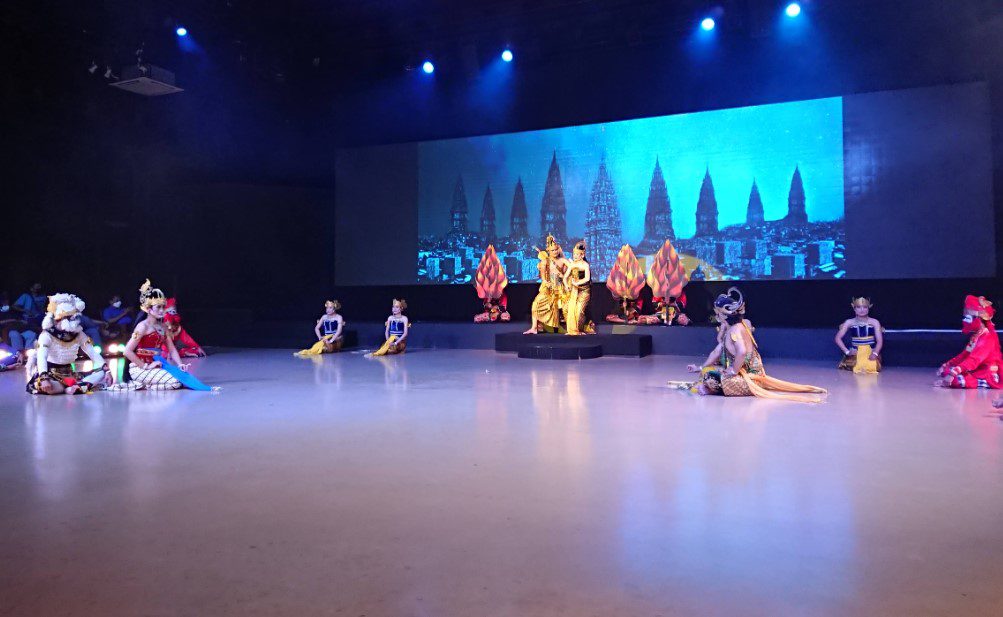
A cultural tradition in Yogyakarta that is no less interesting is the Ramayana Ballet which is able to attract foreign tourists. The Ramayana Ballet is the art of dance and drama combined in one beautiful performance without dialogue with the Ramayana story.
The story of the Ramayana ballet is about Sri Rama who tries hard to save his beloved wife, Dewi Shinta, who was kidnapped by Ravana.
Ramayana Ballet performances are usually held at the Tri Murti Prambanan Theater on Tuesdays, Wednesdays and Thursdays. Tourists who are interested in seeing this ballet can make a reservation in advance. Apart from dancing, tourists who come to watch can also see Prambanan Temple because the background of this ballet is Prambanan Temple.
Tari Srandul
Apart from the Ramayana dance, Yogyakarta also has a cultural tradition, namely the Srandul dance, which is a traditional Indonesian dance art. Srandul art is a form of traditional art in the form of drama dance originating from Bantul Regency.
Although to date the creator of Srandul art cannot be ascertained with certainty, it is said that this art has been passed down from generation to generation.
Jathilan culture
Yogyakarta has a traditional arts culture, namely Jathilan, which is characterized by using horses made of woven bamboo with a number of dancers and musical accompaniment.
This art offers unique features that captivate the audience, namely horse riding, dancing, musical accompaniment and possession by spirits. Until now, Jathilan art still continues to exist because it can be found when there are certain events, where Jathilan culture is displayed.
Jabur
In Yogyakarta there is the Jabur Art culture. This art is Yogyakarta’s local wisdom which is strong with Islamic values. Jabur is a wayang art that conveys Islamic nuances and tells various stories from the Babad Menak.
Karawitan
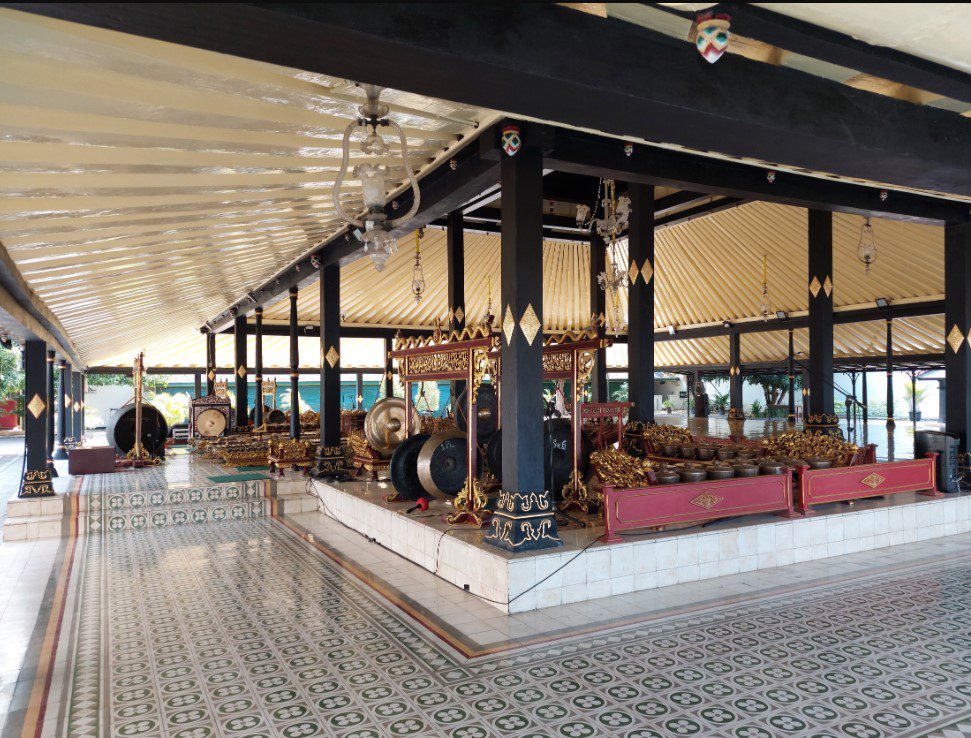
A culture in Yogyakarta that is no less interesting is the karawitan culture. This art is a form of music using gamelan instruments and human voices tuned to pelog or sendro then many pesinden or women sing.
Actually this Karawitan is a thick culture in Java not only in Yogyakarta. But the interesting thing is that karawitan in Yogyakarta has special characteristics such as saviji, sengguh, hard, round, pariotic, spirited, and always fiery.
Historic Site
Not only culture in the form of art and cultural values, in Yogyakarta you will find many historical sites. Yogyakarta even has a palace which is the official palace of the Ngayogyakarta Hadiningrat Sultanate.
Yogyakarta has historical sites such as the King’s Tomb in Imogiri, the Great Mosque of the Yogyakarta Palace, the Dewantara Kirti Griya Museum, the Tomb of the Kings of Mataram, the Northern Palace of the Yogyakarta Palace, Borobudur Temple, Prambanan Temple, and others.
Culinary
Apart from having culture, Yogyakarta also has delicious culinary delights. You can find delicious dishes such as satay klatak, wedang ronde, mangut lele, and bakpia which have delicious flavors suitable for souvenirs.
So, that was a cultural tradition in Yogyakarta from the Yogyakarta tour. Yogyakarta has beautiful and beautiful cultural traditions which are an attraction for tourists.
This is information from the Yogyakarta tour about cultural exploration in Yogyakarta. Hopefully the information provided can be useful for readers.
Are you interested in going on holiday to Yogyakarta to explore Jogja’s culture? Don’t worry because yogyakartatour.com will be your friend to explore the city of Jogja.
As a tourism service provider, Yogyakarta tour will take you on holiday in Yogyakarta.
On holiday with Yogyakarta tour, you will be accompanied by a professional guide. Get exciting experiences and enjoyable holidays with the best price offers while spending time in Yogyakarta.

